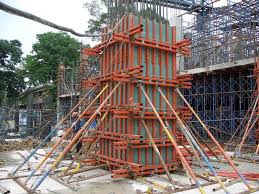jul . 27, 2024 21:59 Back to list
Innovative Production Techniques for Flexible Concrete Formwork in Modern Construction Industries
The Rise of Flexible Concrete Formwork Factories
In the contemporary construction industry, innovation is key to improving efficiency, reducing costs, and enhancing structural integrity. One of the most promising advancements in this realm is the introduction of flexible concrete formwork. This novel approach to formwork manufacturing not only streamlines the construction process but also offers sustainability benefits and design flexibility. As construction demands evolve, flexible concrete formwork factories are emerging as essential players in this industry transformation.
Understanding Flexible Concrete Formwork
Traditional concrete formwork is largely made from rigid materials such as plywood or metal, which can limit design possibilities and complicate the forming process. Flexible concrete formwork, on the other hand, utilizes adaptable materials—often polymers or other composite materials—that can be molded into various shapes and contours. This technology allows builders to create complex architectural designs with ease, facilitating the construction of free-form structures that were previously deemed difficult or impossible to achieve.
Advantages of Flexible Concrete Formwork
1. Design Flexibility One of the most significant benefits of flexible concrete formwork is its ability to accommodate unique architectural designs. Buildings can feature curvilinear forms and intricate shapes without the constraints posed by traditional formwork materials.
2. Cost Efficiency Although the initial investment in flexible formwork systems may be higher, they can drastically reduce labor and material costs over the long run. The lightweight nature of flexible formwork simplifies transportation and handling on-site, while its reusability minimizes material waste.
3. Enhanced Sustainability The construction industry is increasingly prioritizing eco-friendly practices, and flexible formwork aligns well with this trend. These systems often utilize recyclable materials, and their efficiency in concrete usage reduces excess waste. Furthermore, the potential for faster construction times leads to less energy consumption during the building process.
4. Quality and Finish Flexible formwork can lead to improved surface finishes on concrete elements. The uniform pressure distribution during the pouring process ensures consistent quality, reducing the need for extensive post-pour finishing and repairs.
flexible concrete formwork factories

The Role of Factories in This Evolution
As demand for flexible concrete formwork rises, the establishment of dedicated factories is critical. These factories specialize in producing customizable formwork systems tailored to specific project needs. Advanced manufacturing techniques, such as 3D printing, are increasingly being employed to expedite production and enhance precision. Factories are also investing in research and development to improve material properties and explore innovative designs.
Additionally, flexible concrete formwork factories are playing a pivotal role in education and training. By partnering with architectural and engineering institutions, they provide workshops and courses that equip professionals with the knowledge to leverage this technology effectively. This collaborative approach fosters a culture of innovation within the industry, encouraging the adoption of modern practices.
Challenges and Future Perspectives
Despite the numerous advantages, the transition to flexible concrete formwork is not without challenges. The initial unfamiliarity with the technology may deter some construction firms accustomed to traditional methods. Moreover, the need for skilled labor to operate and implement these formwork systems poses another hurdle.
However, as more projects successfully incorporate flexible formwork, its acceptance is likely to grow. The future is bright for flexible concrete formwork factories, as they are poised not only to meet the changing demands of construction but also to lead the charge toward a more sustainable and innovative industry.
Conclusion
The emergence of flexible concrete formwork factories represents a significant shift in the construction landscape. Their ability to provide customizable, efficient, and eco-friendly solutions positions them as crucial players in both the present and future of architectural design and construction. As the industry embraces change, flexible concrete formwork may soon become the norm rather than the exception, paving the way for a new era of building innovation.
-
Expert Ringlock Scaffolding: Durable, Safe, Efficient Solutions
NewsAug.28,2025
-
Ringlock Scaffolding: Strong, Safe & Efficient Solutions
NewsAug.27,2025
-
OEM Column Formwork: Circular, Curved & Inclined Solutions
NewsAug.26,2025
-
Premium Scaffolding Jacks: Stable, Adjustable & Durable
NewsAug.25,2025
-
OEM Wall Formwork & Shuttering: Flexible & Curved Solutions
NewsAug.24,2025
-
Adjustable Heavy Duty Props for Slab Formwork | Strong & Reliable Support
NewsAug.23,2025